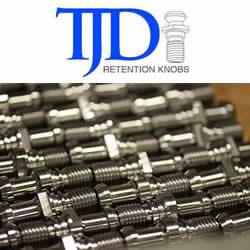Baralan and Stratasys Transform Cosmetic Packaging with PolyJet 3D Printing Technology
Baralan leverages Stratasys' technology to unlock creative packaging designs for high-end cosmetic brands, enhancing product personalization and sustainability
Stratasys Ltd. (NASDAQ: SSYS) today announced its collaboration with Baralan, a leading provider of primary packaging for the cosmetics industry, to expand creative possibilities in cosmetic packaging through Stratasys' PolyJet™ technology. Baralan is utilizing Stratasys' 3D printing specifically to produce end-use parts on glass and plastic containers, offering high-end brands customized, fully decorated packaging that supports both personalization and low-volume production runs.
Baralan's use of PolyJet technology enables intricate, multi-color, multi-effect designs directly on bottles and containers, overcoming traditional manufacturing constraints and giving cosmetic brands the flexibility to create eye-catching, brand-specific packaging that resonates with consumers. This solution empowers cosmetic companies to achieve cost-effective customization while minimizing waste in production.
"Product customization is fundamental for the brand image," said Maurizio Ficcadenti, Global R&D Manager at Baralan. "With Stratasys' solution, we can now offer unique and highly recognizable packaging without the need for costly investments in equipment. This approach aligns with our sustainability goals, and it allows us to meet the growing demand for eco-friendly yet distinctive packaging options in the cosmetics industry."
"The collaboration with Baralan demonstrates how our technology is driving innovation in the cosmetics sector by enabling high-quality, end-use packaging with faster design iterations," said Zehavit Reisin, Senior VP, Consumer Solutions Global Sales and Materials Business at Stratasys. "Using our full-color, multi-material with the capabilities of replicating textures, translucency and supporting different properties on different substrates, brands can achieve greater creative freedom and sustainability in their packaging solutions."
About Stratasys
Stratasys is leading the global shift to additive manufacturing with innovative 3D printing solutions for industries such as aerospace, automotive, consumer products, and healthcare. Through smart and connected 3D printers, polymer materials, a software ecosystem, and parts on demand, Stratasys solutions deliver competitive advantages at every stage in the product value chain. The world's leading organizations turn to Stratasys to transform product design, bring agility to manufacturing and supply chains, and improve patient care.
To learn more about Stratasys, visit www.stratasys.com, the Stratasys blog, X/Twitter, LinkedIn, or Facebook. Stratasys reserves the right to utilize any of the foregoing social media platforms, including Stratasys' websites, to share material, non-public information pursuant to the SEC's Regulation FD. To the extent necessary and mandated by applicable law, Stratasys will also include such information in its public disclosure filings.
Stratasys and PolyJet are trademarks or registered trademarks of Stratasys Ltd. and/or its affiliates. All other trademarks are the property of their respective owners.
Featured Product

